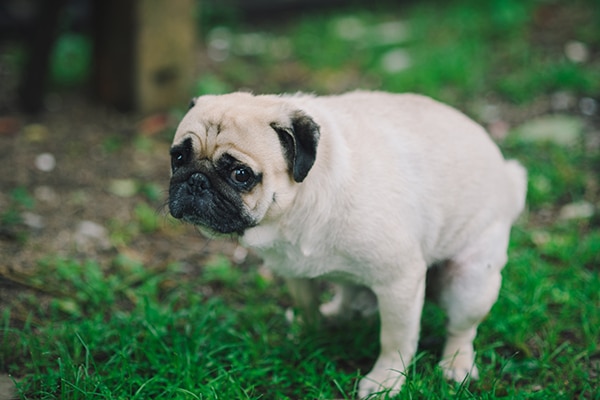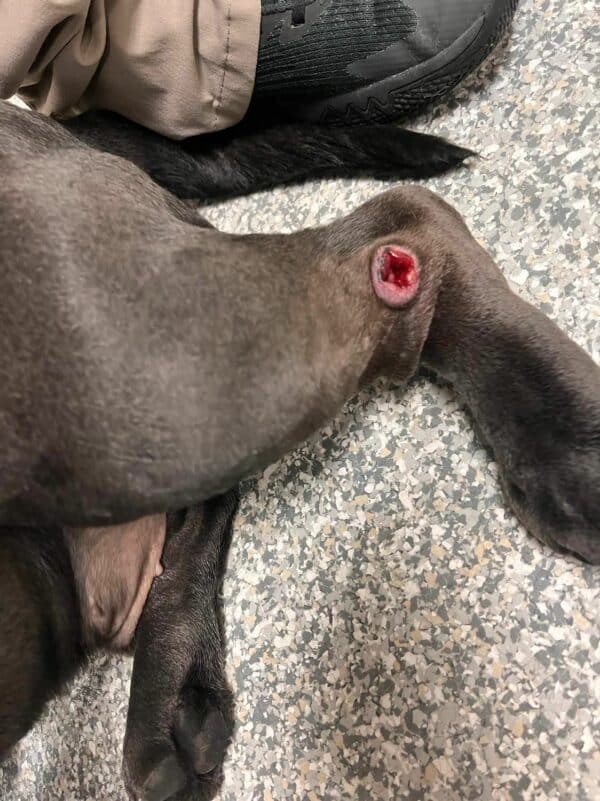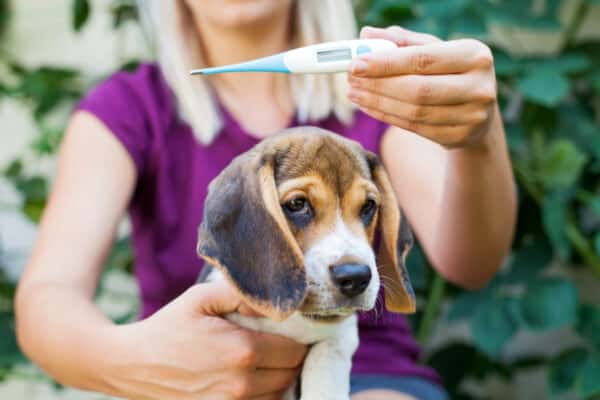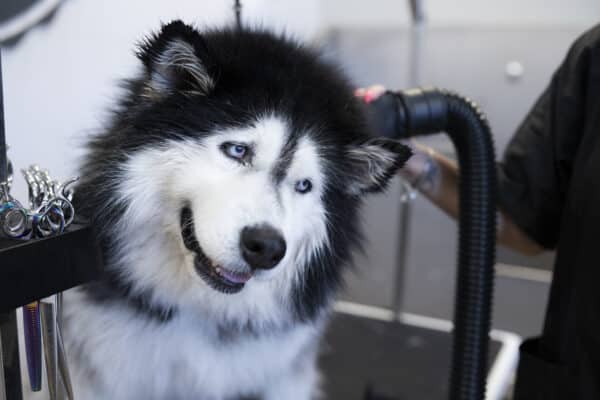Yikes! When you see something red in your dog’s stool, the first thing you think of is your dog pooping blood. But don’t panic. First, determine if the red you’re seeing is truly blood and read on for how to handle blood in dog stool.
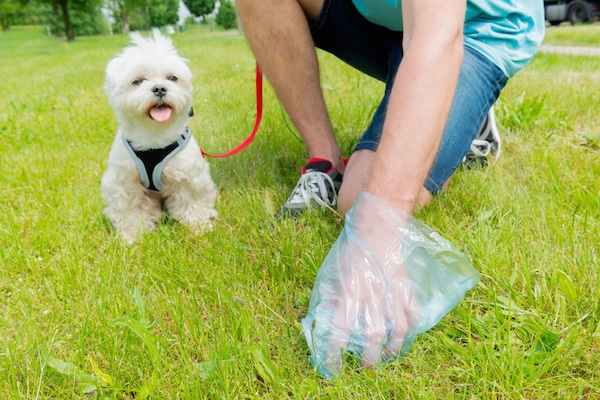
Notice something red in your dog’s stool? First, determine if your dog is pooping blood — or something else
Almost nothing is more alarming than seeing something red in your dog’s poop. Depending on what that red color actually is, red poop can be serious or nothing to worry about. So, if your dog’s poop looks red, is your dog pooping blood — or could it be something else?
“It can be caused by red coloring, like food coloring,” says Tracey Jensen, DVM, Dipl. ABVP, medical director at Wellington Veterinary Hospital in Wellington, Colorado. “It could be something that [your dog] ate that is simply innocently passing through. I once saw a dog that ate strawberry Chapstick, which came through.” If your dog eats red Crayons, they may also color the poop red. In general, food dyes that come from nontoxic sources will pass out in the stool and leave no lasting effects.
With a dog pooping blood, here’s what to know
A more troubling — but unfortunately, also more common — reason a dog’s poop might be colored red is blood. “Blood in the feces can be caused by infections, including various parasite infections or bacterial infections, inflammatory conditions and we do see colon cancer in dogs,” Dr. Jensen explains. “Sometimes, an anal gland condition can cause a coating of blood on the feces.”
What to do about your blood in stool
If you see red in your dog’s stool — and you didn’t recently notice your dog eating a pile of red Crayons — call your veterinarian to make an appointment to have him checked out. If possible, bring a fresh sample of your dog’s stool for the vet to test.
Even if your dog is acting fine, at least contact your vet to have a conversation about your dog pooping blood. “Red always warrants a call,” Dr. Jensen explains. “There are many causes of blood in the feces, some of which are very serious. Contacting your veterinary care team can help you work through some questions to help determine if it’s an emergency.”
Why is my dog pooping blood? Could it be HGE or parvo?
If it’s after hours and you see large amounts of bright-red, bloody diarrhea, especially if the diarrhea is accompanied by vomiting and/or lethargy (your dog is just lying around, clearly not feeling good), don’t wait until morning to contact a vet. Bright-red and bloody diarrhea may occur with an extremely serious condition called hemorrhagic gastroenteritis (HGE). Without treatment, dogs experiencing HGE can become extremely sick and even die.
Additionally, young puppies with bloody diarrhea could potentially be suffering from canine parvovirus, a serious — sometimes fatal — viral disease. Seeing adult dogs with large volumes of bloody diarrhea, or puppies with bloody diarrhea, warrants a trip to an emergency clinic to be on the safe side.
The exact color / consistency can help determine the reasons behind a dog pooping blood
The appearance of the poop, as well as the color of the blood, are clues that will help your veterinarian determine where exactly the blood might be coming from, which can help diagnose the root cause of your dog pooping blood. “If the feces are normal in shape and consistency, with a red coating on the outside that’s determined to be blood, then we know that it’s coming from lower down in the intestinal tract,” Dr. Jensen says. “If it’s diarrhea or soft feces with the red mixed within, then it tells us the blood is probably coming from a little bit higher up the intestinal tract.”
Sometimes, blood in dog stool is not bright red but very dark, black and tarry looking. “When we see the black, tarry stools, that is digested blood,” Dr. Jensen explains. “When we see red blood that is coating the feces or mixed within it, that blood has not been digested, so we know it’s actually entering the intestinal tract closer to the point of exit. When we see black, that tells us it’s spent more time in the intestinal tract and is very likely is coming from areas close to or within the stomach.”
How do you treat a dog pooping blood?
Treatment for a dog pooping blood is highly dependent on the cause of the bleeding. Once your vet is able to narrow down where the blood is coming from, he or she will be able to run some tests to determine the cause and select an appropriate treatment.
The takeaway here? If you notice your dog pooping blood, don’t panic, but do have your dog examined by a veterinarian as quickly as possible. This is not something to wait out, since your dog might require quick and life-saving treatment.
Tell us: Has your dog ever pooped anything red before? Was your dog pooping blood or something else?
Read Next: Is Your Dog Eating Poop? How I Got Mine to Stop
Featured Image Credit: NUKUL2533 | iStock / Getty Images Plus.

